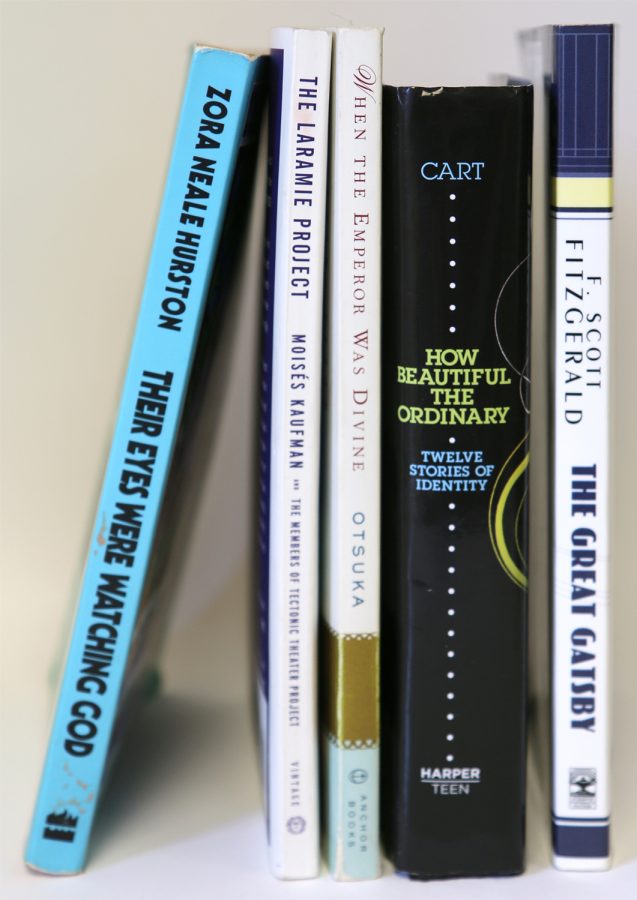Why Doesn’t Lakeside Have Honors Humanities?
The Upper School does not offer any honors or leveled humanities classes, and discussions about introducing them have never gone very far, according to Academic Dean Hans de Grys. Most students take the same English and History classes freshman through junior year, with freshman Big History and junior American Studies being two exceptions, though neither is leveled differently compared to the regular courses. Students’ opinions towards this curriculum choice are mixed: when asked whether Lakeside should have honors humanities classes, 106 Tatler poll respondents answered 39.6% yes, 20.8% no, and 37.7% indifferent. When asked to elaborate, numerous responses expressed that those more interested in humanities “should have the same opportunities as STEM-focused students to delve deeper into a topic through an honors class,” as one student writes.
So why exactly are there no honors or leveled humanities classes at Lakeside?
The primary reason is that leveled humanities courses have less merit than one would think, according to the humanities department heads. Honors STEM classes are characterized by faster pace and increased difficulty, but the definition of honors humanities classes is more ambiguous. English Department Head Emily Chu believes that cramming more materials or moving through topics at an accelerated pace would undermine the deep and deliberate discussions that are integral to the humanities classes. “Process matters more than pace,” says Ms. Chu.
Furthermore, unlike STEM topics and languages, where overly challenging or easy materials deter skill-building and learning, humanities classes are less clear-cut. “When students enter 9th grade, there exists a wide range of experience in math,” explains Mr. de Grys. “But the span is just not as wide in the humanities.” A differentiation in experience does not prevent students from engaging in and understanding the same topics in humanities. In addition, honors humanities may not benefit the overall class environment: as History Department Head James Nau explains, “ if you pull out all the students who are the most eager about humanities in one class and those who are less enthusiastic in another, then you create two very different classroom experiences.” Having diversity in backgrounds, lived experiences, and ways of thinking enriches the classroom. “We want every student to know their voice matters,” says Ms. Chu, “Stratifying courses would run counter to this principle.”
At the same time, the lack of leveled humanities leaves many students feeling not challenged enough. “I would really appreciate an honors English class because I think it would push me to become a better writer,” writes one senior in the Tatler poll. “The current classes are just too easy.” Their opinion is widely reiterated. The majority of the respondents who answered “yes” to adding honors humanities believes that humanities-oriented students should be given an opportunity to be more challenged and dive deeper into certain topics. There are also some concerns about college applications; as one student writes, without honors humanities, “it’s hard to demonstrate [student] interests through transcripts.”
In response, the humanities department heads explain ways how students can appropriately challenge themselves within the current humanities curriculum. “History is [already] designed in a way that allows students to work at whatever level they are capable of in projects, whether that’s through asking a more sophisticated research question, working with more complicated resources, or writing a more elaborate essay,” says Mr. Nau. For English, Ms. Chu suggests that there are many ways for students committed to improving their writing skills outside of class, such as working with teachers on submitting work to publications and doing reading, writing, and research-related volunteering and extracurricular projects.
The humanities departments also offer a wide range of electives that students can take starting their sophomore year. As of the 2021-2022 school year, there are 16 English and 18 history semester-long electives as well as a year-long English-history crossover elective. Ms. Chu notes that the English department will be adding two new electives this coming year — young adult literature and nature writing. The variety in course offerings aims to alleviate the lack of honors humanities, says Mr. de Grys.
Ms. Chu and Mr. Nau acknowledge that there is currently no way of indicating honors levels on students’ transcripts. Nevertheless, they believe the current Lakeside curriculum is balanced between humanities and STEM and that students have many opportunities to demonstrate excellence in the humanities. “Having honors classes for college applications is important,” says Mr. Nau, “But our goal as teachers is to provide our students with an excellent education.”
Hallie X ‘23 has spent much of her time over the past three years contributing to Tatler’s collection, amassing over 20 articles in total. She covers...


